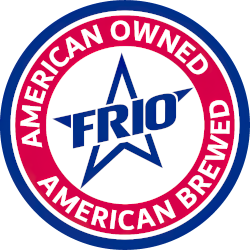The Important Role of Hops in Brewing Beer
The Important Role of Hops in Brewing Beer
If you’ve heard about beer, you’ve heard about hops. These days, you really can’t separate one from the other -- they go hand in hand. But what are hops, anyways?
Hops are the green flowers that grow from a hop plant, also known as Humulus Lupulus. Hops look like little green pinecones; they’re cone shaped and have many layers of thick leaves, all folded over one another.
In beer making, hops are used as a bittering agent. Without hops, beer tends to be too sweet and can even be undrinkable. That’s not all hops does for beers, before we get into that, let’s talk about…
The History of Hops
The History of Hops
It wasn’t until the 15th century that hops became a usual beer ingredient, and that was with help from German beer laws and regulations that stated it was illegal to make beer with anything besides barley, water, yeast, and hops.
So, with hops growing in popularity among beer brewers and drinkers alike, people learned that hops could be used as a preserving agent, as well as a great flavoring agent. With hops, beers could travel by ship from Europe to the Americas without going bad.
With the great taste and aroma hops adds to beer, as well as its amazing preservation abilities, it’s no wonder the two have become inseparable.
Fun fact, hops are also a common ingredient in medicines for preservation.
How Do Hops Affect Beer?
How Do Hops Affect Beer?
As I mentioned above, the time within the brewing process that hops gets added in has a big effect on the way the hops affects the beer.
When hops are added at the beginning of the boiling process, the hops are able to give the beer a distinct hoppy flavor. When hops are added at the end of the boiling process, they give the beer a hoppy aroma. This is because the aromatic oils from the hops won’t have time to be destroyed by excessive heat.
Many brewers add hops in both at the beginning and end of the boiling process to get both the flavor and aroma running through their beers. The hop types that they use for these two benefits are often different.
Bittering hops, a.k.a kettle hops, are a specific type of hops that have a higher alpha acid content and will provide a stronger bitterness to the beer. Aroma hops, a.k.a finishing hops, have a lower acid content, but give beer a strong aroma and may even add to the flavor.
Besides flavor, aroma, and preservation, hops also help stabilize beer foam. So, you can thank hops for that foam mustache you get every time you take that first sip of tap beer.
What If I Don’t Like Hops?
What If I Don’t Like Hops?
Believe it or not, there are some beer drinkers who actually prefer non-hop beers. The bitterness of beers can be a turn off for some people and keep them away from all beers. If you’re one of these people, don’t think that hoppy beers or no beers at all are your only options.
Drink ales! Ales are easy to find, and nobody will give you any side-eye when you order one. And guess what. They’re made without hops. Because ales aren’t made with hops, they’re known to be more fruity, sweet, and full-bodied. However, bittering agents are still used to balance out the sweetness, and to preserve the ales.
Lagers, too, usually get a thumbs-up from non-hop fans. While lagers are made with hops, the hop flavors tend to be less emphasized than they are in other beers. There are some hops-forward lagers in which the hops flavor will be stronger than usual, but steer clear of those and you should be good.
Hops are a huge part of beer brewing and have been for a good 600 years or so, but that doesn’t mean there aren’t alternatives. Whether you’re a hop connoisseur or a hop-less kind of guy, there’s a beer out there waiting for you.
Related articles
How Can Light Beer Like FRIO Have Zero “0” Grams of Sugar?
Beer has a reputation for causing beer bellies and weight gain, and its reputation is not wrong.
READ NOW
Can You Drink Beer on a Low Carb Keto Diet?
The ketogenic ("keto") diet is a popular diet trend. Is beer compatible?
READ NOW
The Remarkable History of Beer – Part 1
Beer has been an incredibly popular drink since 7,000 B.C.E. Beer played a key role in Human History.
READ NOW
10 Fascinating Facts About Women's Role in Brewing Beer
How did women first begin brewing beer, and how did beer brewing turn into such a masculine job?
READ NOW
The Remarkable History of Beer – Part 2
Before the Spanish arrived, Native Americans brewed beer with corn..
READ NOW
What's the Difference 2-row & 6-row Barley?
2-row barley grows only two columns of barley kernels, while 6-row barley grows 6 columns of kernels.
READ NOW






